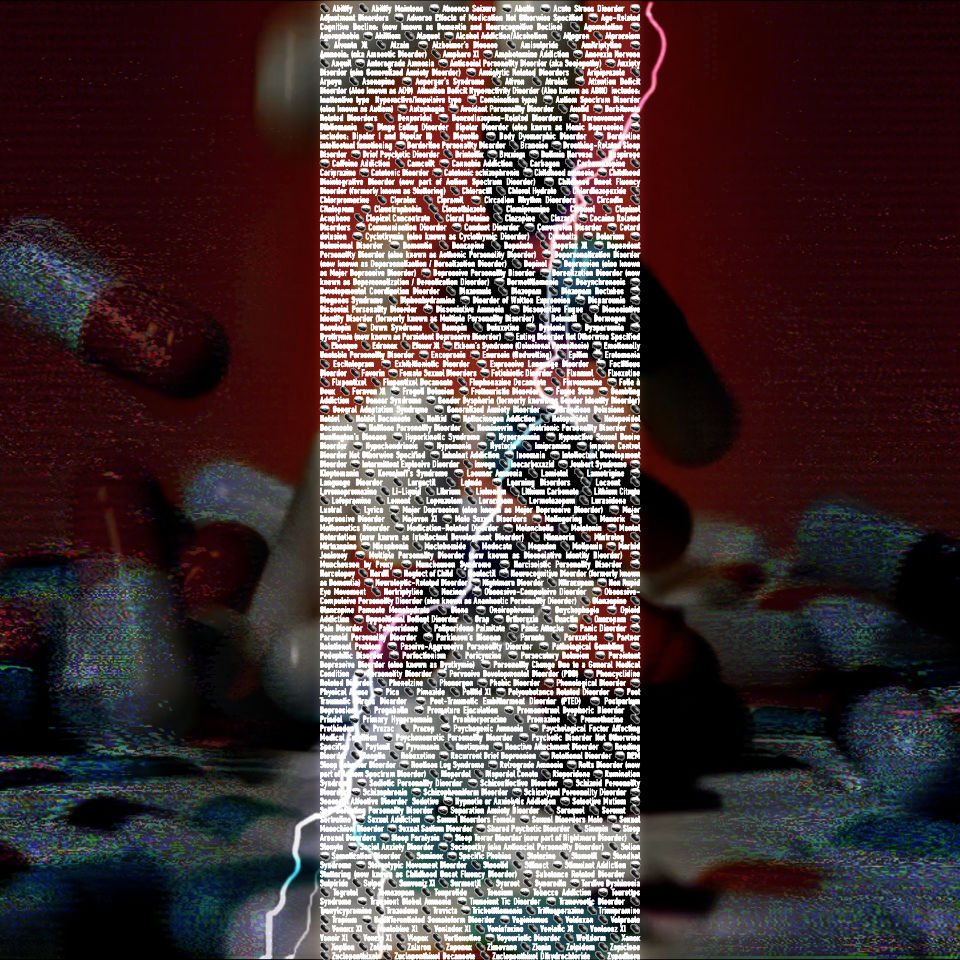Label U Drug U
Label you, drug you, is the business model of the psychiatrist, one of the pharmaceutical industry’s favorite drug pushers. The label is a sales pitch to convince you that you have a problem. “You are bipolar,” “You have ADHD.” You knew you had a problem, but now that it has been identified with a label, it looks much more severe, or at least it looks like there is someone who knows what your problem is and understands it. Better yet, the solution couldn’t be simpler, “take this drug.”
The Diagnostic and Statistical Manual of Mental Disorders (aka: DSM) is the psychiatrist’s bible. It is the official reference guide for the diagnoses of mental disorders. There are no statistics in this book. Periodically, when the American Psychiatric Association (APA) is compiling a new edition of DSM, the list of defined mental disorders to be included are voted in by psychiatrists. That is how a mental disorder is deemed to be a real thing, and how such labels as obsessive-compulsive disorder and manic depressive are born. The decision process for DSM involves conflicts of interest with ex-pharmaceutical manufacturer employees holding positions in the task force. More on DSM and the conflicts of interest.
Psychiatry is a conglomeration of theories. It is not a science, yet they prescribe drugs for the mental disorders they admittedly do not understand. And are these drugs safe? Every pharmaceutical drug is required to list it’s side effects. That list on a psychotropic drug is often very alarming, including such effects as mania or psychosis, hostility or aggression, cardiovascular disorders, heart attacks, strokes, suicide risk or attempts, death or sudden death. Are the benefits worth the risk? That’s up to the patient, but if they choose to find out by trial, by then it may be too late. Are psychotropics effective? Perhaps in suppressing the “symptoms” they are designed to treat, but often at the cost of introducing new complications.
These concerns however, don’t seem to hinder the prescribing of such “medication.” Somehow, even a psychiatrist with relatively good intentions can turn a blind eye to it and continue pushing these drugs. The underlying fact is that the sale of pharmaceutical drugs is highly profitable. When it comes to the pharmaceutical industries undue influence on the subject of mental health, profits come first. The patient’s well-being evidentially isn’t even a priority.
Learn more at cchrint.org.
Lyrics
Put drugs in your food ’til you feel yourself sinking.
And you don’t know why, but you lose yourself thinking.
Ask us for help and we’ll give you a cute little pill.
We’ve even got chewable tablets if your kids are “ill”.
Convince you we need fundings to further research the brain.
Use the funds to kill animals and make the sane go insane.
We specialize in making you more submittable.
Because we want you under our thumb. You are so pitiful.
Drug the elderly to kill them all off quicker.
Try our new stress relief pill and get a free bumper sticker.
Commission your doctor to sell you drugs to use.
If anyone can sell you drugs it’s the doctor you choose.
Prozac
Paxil-Seroxat
Ritalin
Zoloft
Adderall
Wellbutrin
Remeron
Celexa
Lexapro
Zyprexa
Serzone
Sarafe
Effexor
Anafranil
Aventyl
Haldol
Risperdal
Asedin
Luvox
Glutathione
Desyrel
Ambien
Buspar
Insulin
Elavil
Janimine
Benzos
Librium
Norpramin
Ativan
Pertofrane
Carbamaz
Pamelor
Nexiom
Sinequan
Dextrostat
Cymbalta
Adepin
Endep
Diazepam
Tofranil
Cut your drug supply in the middle of your prescription.
Sorry, we can’t sell you those you’re on restriction.
Maybe you can buy them under the table.
Lose the prescription, but keep the addiction and the label.
Manic Depression
Hyperactivity
Obsessive-Compulsive Disorder
ADD and ADHD
Bipolar Disorder
Schizophrenia
Non-Compliance To Psychiatric Treatment Disorder
Dyslexia
Insomnia
Dementia
Aphasia
Separation Anxiety
Post-Traumatic Stress Syndrome
Eating Disorder
Autism
Oppositional Defiant
Alcoholism
Gender Identity
Turner’s Syndrome
Test Anxiety
Disorder Disorder





